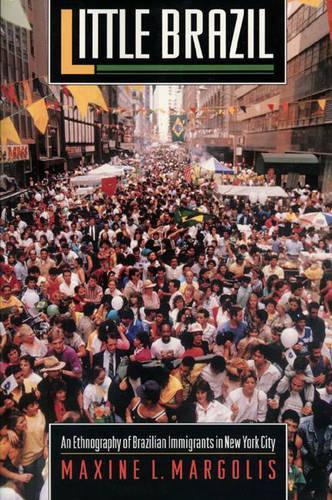
Little Brazil: An Ethnography of Brazilian Immigrants in New York City
(Paperback)
Publishing Details
Little Brazil: An Ethnography of Brazilian Immigrants in New York City
By (Author) Maxine L. Margolis
Princeton University Press
Princeton University Press
28th February 1994
United States
Classifications
Professional and Scholarly
Non Fiction
Anthropology
Migration, immigration and emigration
Civics and citizenship
305.869807471
Physical Properties
Paperback
360
Width 197mm, Height 254mm
510g
Description
Walking west on 46th Street in Manhattan, just three blocks from Rockefeller Center, one passes Brazilian restaurants, the office of New York's Brazilian newspaper, a Brazilian travel agency, a business that sends remittances and wires flowers to Brazil, and a store that sells Brazilian food products, magazines, newspapers, videos, and tapes. These businesses are the tip of an ethnic an unseen minority estimated to number some 80,000 to 100,000 Brazilians in the New York metropolitan area alone. Despite their numbers, the lives of these people remain largely hidden to scholars and the public alike. Now Maxine L. Margolis remedies this neglect with a fascinating and accessible account of the lives of New York's Brazilians.Showing that these immigrants belie American stereotypes, Margolis reveals that they are largely from the middle strata of Brazilian society: many, in fact, have university educations. Not driven by dire poverty or political they are fleeing from chaotic economic conditions that prevent them maintaining a middle-class standard of living in Brazil. But despite their class origin and education, with little English and no work papers, many are forced to take menial jobs after their arrival in the United States. Little Brazil is not an insentient statistical portrait of this population writ large, but a nuance account that captures what it is like to be a new immigrant in this most cosmopolitan of world cities.
Author Bio
Maxine L. Margolis is Professor of Anthropology at the University of Florida in Gainesville. Among her works are The Moving Frontier: Social and Economic Change in a Southern Brazilian Community (Florida) and Mothers and Such: Views of American Women and Why They Changed (California).
